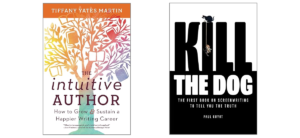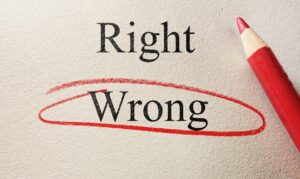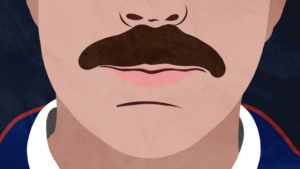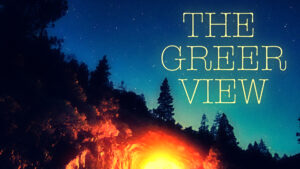Humor
As a connoisseur of writing how-tos (and yes, I had to look up how to spell connoisseur – and okay, “addict” might be a more accurate word), I have read a TON of them. And while I find valuable nuggets in nearly all of these books, lately I’ve noticed that many recent writing how-tos are essentially sharing slightly different flavors of some very similar core information.
So when I encounter a book about writing that offers some new (to me, at least) ways of looking at the craft, I sit up and take notice. My gushing ode to Chuck Palahniuk’s Consider This in this 2020 post is an example.
I just finished reading another such departure from mainstream writing how-tos: The Intuitive Author, by WU’s own Tiffany Yates Martin, who, in addition to being a wonderful writer and editor, is also an insanely good teacher and public speaker. Seriously, if you ever have the opportunity to attend one of Tiffany’s sessions or events, take it. And if you’re an author who speaks at literary conferences, trust me: you do NOT want to follow Tiffany. She’s that good.
Having seen Tiffany’s amazing presentation on backstory at WU’s brilliant 2022 OnCon, I knew what an extraordinary editorial mind she has, and how good she is at getting under the hood to amp up and improve your writing at multiple levels. So with The Intuitive Author, I guess I was expecting a book full of deep analysis into the mechanics of writing, along with some sophisticated editorial techniques. Instead, much of the analysis she offers in the book leans more towards the psychology and strategy involved in pursuing – and ideally, enjoying – the life of a writer.
I quickly realized I was not reading The Average Writing How-To, and I dove into the book with my curiosity piqued. (And yes, I had to double-check whether it was “piqued” or “peaked.” Got it right the first time – yay! Hey, it’s the small victories. But I digress…)
In short, The Intuitive Author is filled with insights and perspectives quite unlike those offered in the vast majority of writing how-tos currently on the market. And reading Tiffany’s book made me think about another writing how-to I’d recently read that takes a pretty big departure from most conventional writing wisdom: the provocatively titled Kill the Dog: The First Book on Screenwriting to Tell You the Truth, by author and screenwriter Paul Guyot.
What does this Guyot dude have against dogs, anyway?
Nothing, actually. Instead, the animal Guyot truly hates – and is taking a not-at-all thinly veiled swipe at – is the cat. Specifically, the cat in the well-known “Save the Cat!” series created by the late Blake Snyder.
If you’re not familiar, Snyder’s initial Save the Cat! book (STC to the cool kids) burst onto the scene in 2005 with a VERY structured set of templates for storytelling, which he reverse-engineered from studying many successful movie scripts. Targeted at aspiring screenwriters, Snyder’s methodology offered a compelling framework for them to adopt […]
Read MoreI’ve just learned a new word that speaks to the very soul of this semiregular column of mine: “grammando,” first used in 2012 by author and editor Lizzie Skurnick in her “That Should Be a Word” column in the New York Times Magazine.
As you might correctly infer, it refers to those people (I want to say “those of us” to myself and regular readers of this column) who take so seriously the strictly correct use of language that it may become their mission.
This word really hit a chord with me, as a former copy editor and current pedantic grammarian, and yet as I listened to linguist Anne Curzán on Adam Grant’s wonderful Re: Thinking podcast, where I first heard the term, I began rethinking my characterization of myself as a (rigid) word nerd.
I’m actually fascinated with slang and the evolution of language in the vernacular. To me—and I’m guessing to a lot of us—there’s music to the language we use, carefully thought out shades of meaning, sound and feel, and vibe we’re aiming for. In other words, voice.
One of the earliest lessons I learned as a copy editor was to respect the authors’ choices (or as I like to think of it, the editor’s Hippocratic Oath: “First do no harm”). Even if something’s technically wrong, if the author feels strongly about it they were generally permitted and even encouraged to overrule the correction.
I think one of the reasons I stayed in demand during my copyediting tenure was that not only was I able to pick up on author voice and such “off-label” usages, but also not try to homogenize it into rigid grammatical correctness.
Language purists, as in fact I have counted myself in the past, may be bristling right about now. I hear my mom’s voice in my head, for instance, bemoaning the end of civilization and humanity thanks to bastardizing our mother tongue.
But our mother tongue is not and never has been a fixed set of rules carved in ivory. With every subsequent generation it evolves with new usages and new words, and the extinction of others. In fact, Curzán cites the editors of the American Heritage Dictionary, whose board of adjudicators she serves on, who say that the basis of their job is to try to keep up how you cats are using the language.
Oh, wait, people aren’t actually cats. Sorry, dude. Oh, wait, not all of you are actual dudes, even those of you who identify as male, since a dude was originally a ranch hand in the West. My bad, unc…but wait, you aren’t my uncle….
I could have used the strictly correct “people” in the above sentence, but that felt a little vanilla for the playful tone and voice I want to strike in these posts. (Oh, wait, vanilla is a plant, and a flavoring derived thereof.)
My feeling is that the literal and rigidly correct use of language can be just flat boring. If there is one element of story that I frequently count to writers as the most important in grabbing your reader and setting your story apart in a world where there is […]
Read MorePexels image by: Suzy Hazelwood
** Warning: the following may contain triggers for the bug averse**
I know how my roguish brain works, yet I resist ….
When I had the ‘luxury’ to focus entirely on writing, it was a wonderfully prolific time. I wrote novels, short stories, articles in local or online magazines, and dabbled in restaurant reviews. I attended conferences and even spoke at a few of them. I did a handful of book signings—meeting readers was a joy and the only part of that I looked forward to. Along with Angie Ledbetter, we became Publishing Editors of the Rose & Thorn Literary E-zine and published many fine writers, and I still remain proud of how we gave so many new and emerging writers and poets a home for their gorgeous works.
Brain didn’t have time to resort to its shenanigans. But since I have not been writing, it’s turned wacky-doodle-dooooooo!
Maybe you think, “Yeah, yeah. The idea that writers are weird, blah blah blah.”
Okay then—it’s not that I’m sometimes (usually) weird because I’m a writer but I’m sometimes (usually) weird because I’m not writing.
My brain sucks up all manner of idea, thought, passersby comments, road signs, dreams, a commercial about Raid (ugh, WHERE IS THE REMOTE? Fast forward!), a Facebook post, something on the floor that turned out to be a Craisin, things my lunatic Maw-Maw told me in the 60s, etcetera.
And my brain likes to fling all this shit about inside my skull willy nilly and makes things a bit difficult to manuever.
I gave my brain a good talking to this morning while walking my wonky-toothed chihuahua mutt. During these heart-to-brain talks, Brain waits patiently for me to finish, giving a few Uh huhs and huh you don’t says and Mmm hmmms. And then it starts up all over again.
I can silence it (temporarily) by saying, “redirect.” Not REDIRECT DANG IT BRAIN YOU ARE DRIVING ME CRAZY SO REDIRECT REDIRECT REDIRECT!” as that only makes my brain go Supernova. So, simply, quietly, serenely: “redirect.”
Some days Brain is exhausting and I could write a book on that, uh, but I won’t. Other days are rather benign but still annoying.
Take yesterday. I went to Big Orange Letters discount store and bought a few things that cost less. Not everything is about The Great Wizard of ‘Zon. Is not!
Sometimes I need to walk around where other people are like-minded-shopping and there are bright lights and shiny things. So I have my purchases in their bags (my apologies to the Earth) because I forgot my reusable bags in my car and people are not so patient to wait for me to fetch them. Once home I take the stuff up the stairs to my living area and suddenly the Raid commercial that I didn’t fast forward through quick enough fwaps me upside the head.
Read MoreFirst things first: This post has nothing to do with the feminist meme that went viral last spring, asking women whether they’d rather be stuck in the wilderness with a man or a bear. While the conversations and debates that meme inspired were illuminating, divisive, and probably long overdue, I will be focusing on a different type of hirsute carnivore today: the highly successful Hulu TV series, The Bear.
If you’ve ever had the occasion to observe the none-too-svelte physique of the AMC (Adult Male Cronin), it may not surprise you to learn that I am a foodie. Food and me, we’re good buddies. I love learning about it, reading about it, cooking it, and yes, eating it. (Really love that last part.)
When Covid hit, my foodiness (might be a word) only grew, as our household’s frequent dependence on restaurants ground to an abrupt halt, and we found ourselves cooking Every. Freaking. Meal.
Every. Freaking. Day.
An upside of this is that my culinary skills and repertoire increased dramatically. But an even more significant upside was a newfound awareness of something I’d never bothered to explore before: TV shows about cooking. First came The Great British Baking Show, which I’d certainly heard about, but sounded mind-numbingly dull. WRONG. I immediately fell in love with the show, its cast of everyday-people contestants, and yes, Paul Hollywood’s eyes. I mean, come on. Those EYES. But I digress…
I mean, come ON.
Next came Top Chef, which became the new nightly binge-fest in our locked-down home. Then other cooking competition shows (none of which quite hit the mark like TGBBS or Top Chef), followed by the Covid-inspired flood of YouTube home videos about cooking from locked-down professional and aspiring chefs, many of which were extremely informative and entertaining.
The one genre I avoided was the seemingly endless onslaught of “Celebrity Chef Brutally Belittles Aspiring Students/Contestants” shows (ok, that might not be the actual genre name) that had also become increasingly popular, where big-name chefs (usually with very distinctive hairstyles) did their oh-so-shouty best to crush the spirits of less experienced cooks, all in the name of dramatic “reality” TV. Yeah, that’s gonna be a hard pass from me.
Bear with me…
I’d been hearing about The Bear since it came out in the summer of 2022. But I purposely avoided it, for one main reason. EVERY description I read or heard about the show always included the word “stressful,” so I assumed it was a drama about one of those shouty “rockstar” chefs constantly berating his hapless staff. Between that mistaken assumption, and the way the S-word invariably popped up in every discussion of the show, I concluded preemptively that The Bear – despite how good everybody said it was – was simply Not For Keith. Here’s why:
Despite the air of insouciance (a word I am not entirely sure how to pronounce, but am 87% confident that I am using correctly) I strive to convey, it may surprise you to learn that I am a very stressy guy. Like, VERY. About what? You name it – I’m an equal-opportunity stresser, with a long-proven ability to worry and stress over just about anything. And as it happened, I was having a […]
Read MoreWhen one is a word nerd, one can fight against one’s nature—suppressing the automatic correcting of friends’ misused words…working to suppress a shudder when a newspaper (a damned newspaper! bastion of a free and informed society!) is rife (not ripe) with dangling modifiers…trying hard not to see that billboard that for the love of all things holy misuses an apostrophe for a pluralization as the SIGN OF THE GRAMMATICAL APOCALYPSE that it obviously is.
But our nature will out. I’ve been resisting another pedantic post on the vagaries of our vernacular, but then no less a linguistic luminary than Benjamin Dreyer (who was very remotely once my boss in the 15 years I was a freelance copyeditor for Random House, back before it osmosed into Penguin—where I was also a copyeditor) writes a Washington Post op-ed about rampantly misused words and I’m off the wagon.
Join me on my bender, fellow grammar geeks—here are a few banes of a recovering copyeditor’s existence. Today we’re diving into conjugational tomfoolery of some of American English’s most provocative participles.
Vexing Verb Variations
Here’s how some common verbs conjugate: Sink/sank/sunk, drink/drank/drunk, spring/sprang/sprung.
Some of these can be a bit counterintuitive—for instance, I can’t tell you how often I read, “She sunk into a chair,” where the writer is incorrectly employing the pluperfect conjugation despite writing in past tense. GAH.
For those who aren’t quite as geeky about grammar, pluperfect is also known as the past perfect—or as I like think of it in my shortcuts-for-dummies mentality (and by dummies, I mean me, the woman who still sounds out “Wed-nes-day” syllable by syllable to make sure I spell it right), the past-past tense. Or if we want to dumb it down even further, you can think of it as the “had” tense, as in, “The author of the blog post had never seemed so pedantic to her readers as she did at that moment” or “The writers’ site had been interesting until it was hijacked by an out-of-control editor.”
The pluperfect is the one I always advise authors to use care with, especially in flashbacks, where it can get a little thick and ridiculous—witness this perfectly correct sentence: “The yogurt she had had had had three weeks to turn green in the sink.” Ah, English, you whimsical little minx.
Pro tip: If you’re writing flashback scenes within a past-tense story, which is often where the pluperfect tense comes creeping in, signal that time shift to readers with a well-placed “had” or two here and there, but then drop it or your writing will seem cluttered, your reader will become weary, and you will seem a pretentious douchebag.
Back to sink/sank/sunk: The boat is about to sink; the boat sank last week; the boat had already sunk when Jack and Rose found the apparently single-occupancy door floating in the Atlantic.
The same applies to spring/sprang/sprung—although virtually no one uses sprang correctly. Nonetheless, he sprang out of his waterbed, which had sprung a leak.
For some reason drink/drank/drunk causes great consternation, as if using the correct pluperfect is a value judgment on someone’s tippling habits: After they drank the first bottle of wine, they reached for the second, but realized they had already drunk it. (At which point yes, perhaps indeed they were drunk, […]
Read MoreAround 14 years ago I posted my first video (on Vimeo at first, and then I stumbled my way onto YouTube a few years later). I did it out of cowardice. I was getting my Masters at Antioch University and I needed to lead a 50-minute lecture. I was so terrified of public speaking that I recorded a 20-minute PowerPoint presentation to kill some time during the lecture. The video was about my obsessive short story submission process, navigating the slush piles (which were mostly physical piles of papers back then). While recording it, I was so worried it would be boring that I told a few jokes about my insecurities, through my recorded words and through visual gimmicks on the screen. The presentation went well, people liked the insights, laughed at the jokes, and I even had fun with the Q&A afterward. I graduated, but more importantly, I learned that I loved making these silly videos.
I’ve been making videos ever since. Always experimenting with different low-budget low-skill ways of adding humor to these videos. I’ve taken some detours to talk about health issues, chronic pain, gaming, and other weird things, but mostly I’ve circled around the creative process, especially writing.
Therese kindly reached out to me back in 2011 and I’ve posted many of the videos on the fabulous Writer Unboxed.
Anyway, to celebrate these 14 years, I thought I’d share with you 14 of my favorite videos about writing. Some of these made their way onto WU. Others not. Feel free to join me on this awkward ride and pick a few videos to watch. I’ve broken them into a few categories:
The Creative Mindset
Lately I’ve focused on the creative mindset a little bit more than the specifics of the process. Though after scanning my videos, I see that I’ve been fascinated by the mindset for many years. Here are four examples across the years.
1. Most People Don’t Give a Shit About Your Thing • June 29, 2022 • 5 minutes
2. Taking Risks • January 21, 2014 • 6 minutes
3. Bathing in the I-Don’t-Know-ness • December 13, 2020 • 6 minutes
4. To Hell With Your Productivity Tips • October 20, 2022 • 5 minutes
The Writing Process
From the start, I was always trying to nail down a realistic process to help me get my writing done. Here are four approaches I took to discussing the process.
5. Writing a Novel When You’re Too Busy to Write a Novel • February 1, 2020 • 5 minutes
6. Non-Crappy Writing Groups • January 23, 2012 • 5 minutes
7. Writing Through Pain • June 26, 2018 • 4 minutes
8. Fresh Ways to Look at Your Crappy Writing • November 24, 2011 • 5 minutes
Writing Tools
Although I’ve spent a lot less time focusing on writing tools, I’m still a little bit fascinated with the best way to use my digital tools effectively. Also, I ❤️️ Scrivener.
9. Why Scrivener? • September 18, 2015 • 7 minutes
10. How I Use Tech to Write • February 13, 2019 • 3.5 minutes
Book Releases
I published two novels in my time of making YouTube videos. […]
Read MorePexels Image by Melanie Brumble
I watch a lot of Food Network and HGTV. I find it calming and motivating.
I’m not much of a cook, but I’ve learned a little from Food Network, like patience and to pay attention since my jittery nature often is distracted from the stove or oven. I have eaten scorched food too many times to admit.
Why are some lessons so stubborn to learn from the mistakes?
With HGTV I love the voyeurism of peeking into other people’s houses to see what they like and how they live.
When I am full of myself, I holler at my TV, “You picked that house/design team/chef? Are you serious?” I know there are others smiling at their TV saying, “Oh, they picked right.” Well, bless their hearts.
A lesson I repeatedly hear is to be true to your own voice and style, and while it’s great to experiment, to try new things, to reach out farther than you thought you could or would, it is so much better to be You while doing it.
Competitors often lose as they lament too late, “I should not have tried to impress the judges but done what I am good at.” I eat my scorched food and scoff at the screen, “Yeah! You should have! Huhn.” Often, they admit if they win it is validation that they are in the right business. Well, if they lose, then what?
Then there are times they do everything just right, beautifully, and still don’t win. Subjective, isn’t it?
If it’s a meal, we likely aren’t losing much if we mess up. However, if it’s décor or floors or appliances, etceteratata, well, we have more of a kerfluffle don’t we?
Trends come and they go and return and go again. If you aren’t super confident you will like your result for what it is despite some designer telling you it’s great, and if every time you walk into that glowingly sterile white kitchen or cook with that pretty pale pink stove that goes with your pink countertops and heavily patterned floor you will want to sob, well, then re-think that trend a while.
Maybe that home reno works for someone else, but does it really speak to you? Maybe that struggle to feel comfortable is you aren’t doing what makes you feel at ease, real, true—happy.
There was an episode of HGTV where an ‘influencer’ had to stay current to the latest trends, while her about-over-it-already partner was frustrated because constantly changing things to please her preciousnesses’s followers was time-consuming, expensive, and disruptive. She was so bent on being relevant that she lost sight of Home. And nothing would ever be Done. Ya know?
Trapped in a loop of trying to please everyone, which we know is never going to happen, sounds exhausting. And noisy and crowded, what with all those voices chiming in with their thoughts and opinions and negative we hate that why did you do that it sucks so you suck.
Our innards are smarter than we give them credit, I tell you what. Like when I painted some walls red. I knew I didn’t want red; my mind had been set on something calmer (with my overactive chaotic brain, I keep my physical home environment calm, […]
Read MoreAs some of you may already know, in addition to being a highly sought-after shirtless model for romance novel covers, I am also a longtime professional musician, having earned my first money for playing drums at the ripe old age of 14. In fact, music was my fulltime profession until my late 30s. And I didn’t start seriously writing fiction (inasmuch as anything I write could be considered “serious”) until I turned 40. (So you might say that as a writer, I was a 40-year-old virgin. But I digress…)
Coming into a new-to-me art form with a lengthy background in another, I’ve been repeatedly struck by how many parallels I’ve encountered between the two creative paths. It has also been interesting to note the very different experience of learning one art form as a child, and learning another as an adult (inasmuch as a person like me could ever be considered an “adult”).
But I’ll leave the exploration of the whole young-versus-old-artist rabbit hole for some other day. Today, I want to explore five similarities I’ve found in pursuing two art forms – writing and music – at the professional level. I’ll start with the one I think is most important:
1. It’s a business.
Thus far I’ve been calling them art forms, but when you start actively seeking a paying audience for your work – whether written or musical – you quickly become aware that you are dealing with a business, which brings with it numerous rules, obstacles and rites of passage, many of which are not clearly stated or even openly acknowledged. Yeah, it’s fun like that. Trust me: You’re gonna want to wear a helmet.
In each case, because it’s a business, many decisions that will affect your success are A) based on money, and B) out of your hands.
As a musician, this could come down to who is willing to hire you, or to pay to see you perform, or to publish your music (an area that used to be where the money was in songwriting), or to finance your recording and/or tour, or to buy your recordings. Bottom line: It’s about who will spend their money on this thing you chose to do. As the artist, all you can do is make whatever product or service you’re offering as appealing – and as competitive in terms of financial value – as possible.
Writers are in a similar position. Whether you’re pursuing the traditional publishing route, or self-publishing, or trying to get a piece of your dramatic work produced either on stage or screen, somebody else has to decide that what you’re doing (or promising to do) is worth their money.
In both cases, as an artist, you are free to express yourself in any way you see fit. But as an artist who wants to be paid for that art, it quickly becomes obvious that some pathways lead a bit more directly to potential revenue generation than others. Hence my next observation:
2. Genre matters.
For example, a thrilling 70,000-word whodunit with a strong, confident protagonist stands a better chance of selling some copies than a 600-page second-person diatribe exploring the modernist paradigm of discourse that forces the reader to choose between subcapitalist situationism and the dialectic paradigm of consensus. (Incidentally, I have no […]
Read MoreIn the late ‘70s, when I was a freshman at Indiana University in Bloomington, Indiana, a film crew descended upon our quirky little town to shoot a movie. At the time I believe it was called “Bambino,” but that would change. The movie focused on an annual bicycle race the university hosted, called the Little 500 (a reference to the famed Indianapolis 500, the big annual auto race held 50 miles to the north). The Little 500 was the event of the year for students and townspeople alike, and to this day it draws crowds of 25,000 whenever April rolls around.
When you live in smalltown central Indiana, it’s not every day that Hollywood comes calling, and both the city and the university greeted the film project with open arms. It was the talk of the town, and soon we began seeing sections of the campus and surrounding area cordoned off while a cafeteria, courtyard or local street was commandeered to film some scene.
What was the movie about? Nobody really knew, other than that the climactic moment would be a reenactment of our big bicycle race. And – most thrilling of all – there was an open call to attend said reenactment as an extra, since they needed the stadium in which the race was held to be full of people. As a bonus, they also needed a ton of competitive bike riders, and since my dormitory floor had a team that had qualified to compete in the real race, the guys on that team were hired to ride in the reenactment, while the rest of their loyal floormates fake-cheered them on from the stands, hoping to be captured forever on film.
Suffice to say, we were stoked.
It didn’t take long for some of the novelty to wear off. The film crew seemed to be everywhere, and they showed no signs of ever being done. It became tiresome to have to walk around to a rear entrance of an academic hall, because the front of the building was being used for some scene they were shooting.
Even more troubling, we began to notice what they were getting WRONG. We heard talk that the movie would highlight rivalries between students and “cutters” – a derogatory name the filmmakers were using for the local townspeople, harkening back to a bygone era when Bloomington was home to a large workforce of limestone cutters. The problem was, the limestone quarries had been closed for years, there was little or no actual rivalry, and nobody called them “cutters.” “Townies,” maybe. A few called them “stonies” (for “stone cutters”). But what was all this “cutters” nonsense? No, this did NOT bode well.
And then there were the race scenes. Despite the initial surge of interest, it quickly became evident that there was no way to actually fill the stadium where the race was being filmed day after day, because nowhere near enough people were showing up. So the film crew would direct us (yes, yours truly was in some of the crowd scenes) to all shuffle back and forth to different parts of the stadium and sit together in crowded clumps of people. After one shot was completed, we would be ushered to some other section of the stands, and […]
Read MoreLanguage is an elastic and fungible thing.
Elastic because it stretches to include vernacular and slang, dialect and patois, regional and cultural quirks, and even out-of-the-box usages like acronyms and emojis.
Fungible because it changes to evolve with society and the people in it, who aren’t constrained by rigidly trying to fit themselves into a restrictive set of ironclad idiomatic rules and usages, but rather who make their language change to reflect them and their world.
If it didn’t, yea, verily would we find ourfelvef prefently talking like thif forthwith, lo.
This evolution is right and good and as the Creator intended.
And yet just as is true in a healthy functioning society, balance must be struck between maintaining guardrails for holding the line of established norms and standards that do serve to help society function—like accepted meanings and usages of language that facilitate clear communication—and allowing room for these “rules” to shift and change to accommodate societal and individual progress.
And yet… And yet, friends, there is still a need for order and structure and consensus. One must, if one wishes for words to maintain meaning and clarity in enabling successful human intercourse (I’m talking about interrelation and communication—don’t make it weird), agree upon certain conventions and accepted denotations for words.
Which brings us to this latest installment of “You Keep Using That Word…” my semiregular and perhaps vainglorious attempt to hold that banner aloft and work to maintain at least some kind of linguistic order in this increasingly chaotic world. (H/t to Ken Hughes for the series title…and do we see what I did there with the “h/t”? Whoa. Meta.)
Vexing verbs
One of my many foibles is an irrepressible urge to mentally correct common misuses, like substitution of one word when the writer means another—as unconscious and inevitable for me as a patellar reflex.
It goes thusly:
Hapless author: “She set her cape on the fireplace mantle.”
My brain: No, she did not—she set it on the mantel.
If I’m feeling really pedantic and picayune (which I frequently am), I might righteously add to myself, In point of fact, she set her mantle on the mantel, amusing myself no end and cackling aloud as a result, eliciting perturbed looks from those around me.
Or take today in the New York Times—the venerable Gray (not grey, in this country anyway) Lady!—where a headline declared that at the first GOP debate, one wannabe overlord—sorry, president—allegedly “mislead” viewers about a certain topic.
Aside from the who-could-have-foreseen-that shock of a politician misleading anyone, we have a very common verb-tense violation: It should be “misled” in past tense (which as a younger human I used to pronounce like “whistled,” which makes sense, actually, so let’s give a bye to poor, literal baby-Tiffany, who also pronounced the “w” in sword and the “b” in “subtle,” because come on—look at them! But at least she was trying hard to master new vocab).
And let us stop here for a moment and pour one out for the many copyeditors whose jobs were axed in journalism budget cuts, resulting in egregious errors like the above (or inadvertently hilarious headlines like this) regularly making it into even the most respected publications. Woe betide society, and THIS IS WHY WE CAN’T HAVE NICE THINGS.
The above misuse […]
Read MoreThe Apple TV show Ted Lasso has been mentioned here before, most notably in this post by former WU regular Bill Ferris, who spotlighted the show two years ago. But staying true to my lifelong habit of being woefully behind the times (I still haven’t gotten around to seeing that new Kevin Costner movie, Dances with Wolves), I was late to the party in joining the sizable fandom of All Things Lasso.
I’d been hearing about Ted Lasso for a while, but had been dragging my feet about checking the show out. For one thing, it appeared to be about sports. I not only don’t care about sports; I actively dislike them – a holdover from my teenage days when I resented all the attention that high school athletes received, while musicians and other artists were largely ignored. (Yes, I am an attention slut – why do you ask?) It also sounded like a pretty goofy fish-out-of-water premise: an American college football coach who suddenly finds himself transported across the Atlantic to coach a professional English soccer team. So it seemed the level of suspension of disbelief the show would require was already taking this into shark-jumping territory. And then there was that ridiculous ’70s pornstar mustache I kept seeing in photos of the titular character. No, this clearly did NOT look like AKVF (Acceptable Keith Viewing Fare).
I also didn’t like the idea that I’d need to subscribe to yet another streaming platform to watch this show. I’m already shelling out money to Amazon, Netflix, Paramount, Disney, and maybe a couple more. But I couldn’t find any other way to watch this show without subscribing to Apple TV. So I grudgingly signed up for one month, figuring I could quickly tell whether this show was worth continuing my subscription.
Okay, I have to admit: Within an episode or two, I was hooked. I went on to binge-watch all the older episodes, and then began viewing what would turn out to be its final season in real time, sometimes waiting an entire excruciating week between episodes (surely one of the most relatable first-world problems of our day). I thoroughly enjoyed the entire series, and was struck by what a unique experience I had in watching this show, so today I thought I’d explore my Love of the Lasso. Okay, that sounds like a pulp fiction paperback title that could have a VERY dodgy cover, so let’s move on and take a look at why this show stood out for me.
NOTE: I’ve attempted to avoid any spoilers, but I will allude to some of the long-reaching themes and concepts the show explores.
First of all, it’s so gosh-darn different.
One of the few upsides of the pandemic – besides allowing many people to work corporate jobs barefoot and in gym shorts – was the quality of streaming TV shows that emerged. But, perhaps not surprisingly, many of those shows explored some VERY dark themes. Ted Lasso stands out among them for having an unapologetically upbeat main character, who is bound and determined to share his own folksy (and okay, often seemingly corny) philosophy with everybody he encounters. As the series progresses, we learn that Ted’s life is not all sunshine and rainbows, but […]
Read MoreI know I’m not alone in this: I love a good metaphor. Finding a comparison (metaphor, simile, analogy, call it what you will) that perfectly suits the narrator’s voice is one of my favorite things in fiction.
However, there’s one thing out there that I’ve heard compared to just about everything under the sun, yet none of the metaphors I’ve heard quite fit.
I’m talking, of course, about the shape of a person’s writing career.
Here are the three metaphors I hear most often and why they fall a bit short of helping you figure out your own way forward.
Your writing career is a ladder. Yep, this is the one I hear most often. And I see why it’s tempting. Especially in traditional publishing, there are “tiers” of success, and you aren’t going to reach a higher one (the New York Times bestseller list!) without having achieved the rungs below (writing a book, getting an agent, etc.) The issue with this is that it implies that once you reach a particular rung, you’re only going to go up from there–but publishing is full of ups and downs. You don’t just go up and stay up. You might have to switch to another ladder entirely, or maybe you climb what you think is a ladder and it turns out to be a step stool. Anyway, publishing is way too complicated to fit this narrow model.
Your writing career is a road. In the whole “life is a highway” vein, it’s easy to compare any particular endeavor to traveling–there are forks in the road you need to choose between, sometimes you run out of gas, all that good stuff. Like a road, a publishing career can certainly branch off in different directions and circle back on itself, so it’s more fitting than the ladder, but the comparison still leaves much to be desired. Is the rest of your publishing team in the car with you giving you advice on navigation? What exactly is the gas that fuels you forward? Can you change cars? Food for thought, but not a lot of answers.
Your writing career is a garden. I’m a little more fond of this one, since it leaves space for more complexity. And it does include the dimension of time–you can’t expect to plant something and harvest its fruit right away. Gardens are vulnerable to outside forces, like storms and drought, that can stunt your plants even if you do everything right. So it’s fitting in that way. But in a real garden, winter will always come, forcing you to start over in the spring. In writing, starting over is only one of many, many possibilities.
So… your turn! Can you find a better metaphor that fits the shape of a writer’s career?
Read MoreLike a lot of us who have borne a lifelong love for language and words, I have always been almost as fascinated by the mechanics of writing as by the style and substance.
Spelling bees were the bomb for me when I was younger (and I admit to participating in more than one adult version as well), and diagramming a sentence was my jam in high school—the order and logic and lucidity of it all! In its precision and clarity, language could be like math, except actually fun. Those of us who find our way into editing careers often seem to be as left-brained as we are right-brained.
Punctuation can be as thrilling as grammar: The wrongly maligned semicolon magicking a comma-spliced run-on sentence into an elegant complex thought; the jocular, informal em dash heralding an impending related tangent, explanation, elaboration, or contradiction that reflects so well the way many of us think and talk.
But judging by the heated throwdowns over the humble Oxford comma, ellipses, my cherished semicolon, and others, people have feelings about punctuation. Sometimes uncomfortable ones.
Let’s see if we can assuage some of those emotional reactions by clearing up at least a few vexing little punctuation bugaboos. Punctuation isn’t an author’s nemesis, but her helpful handmaiden; think of it as the traffic signals of writing to guide your reader smoothly through the flow of your story.
Punctilious Punctuation
Let’s start with the most egregious punctuation violation: If you are still using two spaces after a period, I invite you to stop it. That convention is a relic of the earliest days of typography, and using it may make you look like a dinosaur. Of course, you are welcome to continue insisting upon it, but let’s acknowledge that it’s a bit of an affectation, like wearing a monocle, isn’t it?
You go on and do you if you must, Mr. Monopoly, but in today’s youth-obsessed, debut-obsessed world, do you really want to draw attention to the fact that you learned a QWERTY keyboard in “typing class” on a manual Smith-Corona with only one monospaced “font” that required the extra spacing for readability?
While we’re at it, you might let go of your beef with the Oxford (serial) comma. For some reason it’s become regarded as the comma of commoners—highbrow lit-rary folk seem to eschew that helpful little device, as do Anglophiles, as Brits tend not to use it. Revisit some of the many hilarious misunderstandings you risk by not using an Oxford comma and let them encourage you to take a moment for that single extra keystroke of comprehension and clarity.
And here’s the skinny on ellipses: No more does the venerated world of publishing add a persnickety little space between each dot. Close those puppies right on up…just like that…. BUT:
Quotation Vexations
Speaking of our […]
Read MoreA dear friend of mine is having her name changed today. After her 20-year marriage ended in divorce a year ago, she decided to go back to using her maiden name, and today is her day in court, where she’s making the change both legal and official.
It is a powerful gesture, in multiple ways. It excises the ex-husband’s name from her life, but it does even more. My friend’s maiden name happens to be a beautiful and poetic word, literally a word that many people love and even celebrate. Her ex-husband’s surname? Spoken aloud, it sounds more like a cross between a rare skin disease and a Taco Bell appetizer. (Okay, I might be a little biased on that front; I was never fond of the man. But I digress…)
In preparing for today, my friend learned (as countless women have learned when either starting or ending a marriage) that the process of getting one’s name changed can be quite the hassle. But in her case, it’s totally worth it. For her, it simultaneously represents both a return to who she was, and a new beginning. In short, she knows something that I want to remind you of today:
There is power in names. And we as writers should try to leverage that power.
I see a lot of writers going with character names that are rather… generic, if I’m being honest. And while those names might tick off all the boxes for being realistic, believable, and/or even period-correct, I don’t think that playing it safe like that is always the most compelling approach. So today I want to look at the greater impact you can evoke by making bolder choices with your names. But being an open-minded guy who can usually see both sides of an issue, I’ll also offer a couple of examples where seemingly generic names were the perfect choice. But let’s start on the non-generic side of things…
The good, the bad and the ugly
Many authors take advantage of the fact that some names just inherently sound good or bad. Hang on – let me clarify. I’m not saying the actual name sounds good or bad; I’m saying it makes the character sound like a good or bad person. While this is particularly prevalent in fantasy and graphic novels, a good- or bad-sounding name can really help establish a reader’s perception of your character in any genre.
Some names that “bring the good” include Aragorn, Atticus Finch, Forrest Gump, Frodo Baggins, Hermione Granger, Holly Golightly, Jack Ryan, Joe Christmas, Huckleberry Finn, Nero Wolfe, Oliver Twist, and Phileas Fogg – I’m sure I’ll think of three dozen better examples the moment this post is published.
By contrast, some names immediately give you bad vibes, letting you know all is not right with this particular character. I’m writing this paragraph on Valentine’s Day, and I doubt that back in elementary school any of us would have wanted to receive a Valentine from a member of this motley crew: Draco Lucius Malfoy, Cruella de Vil, Dracula, Madame Defarge, Hannibal Lecter, Lord Voldemort, Miranda Priestly, Severus Snape, Nurse Ratched, or Simon Legree. One could argue that some of these names are pretty heavy-handed. And yet, look at how successful those not-so-subtle names have been in entrenching […]
Read More



















